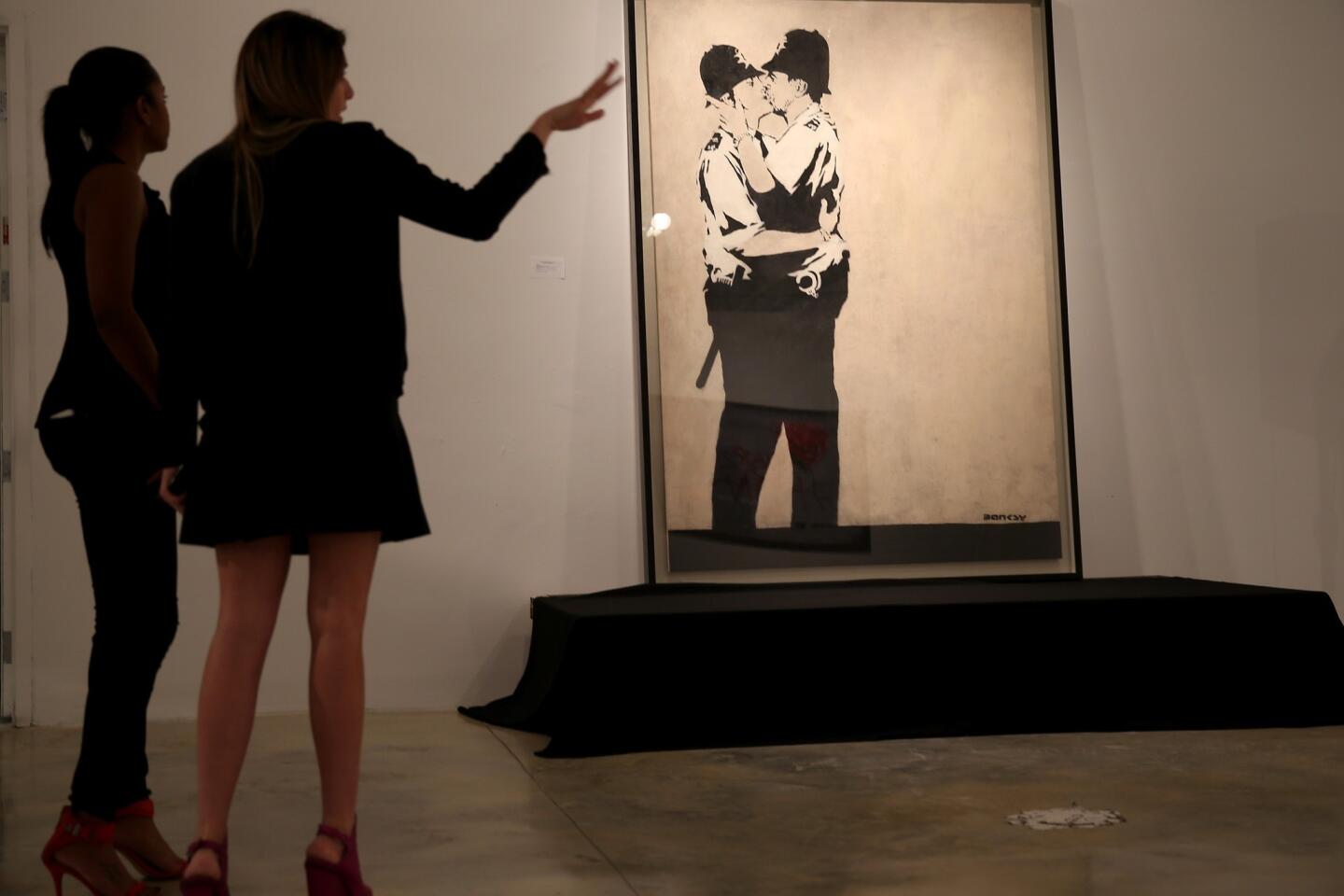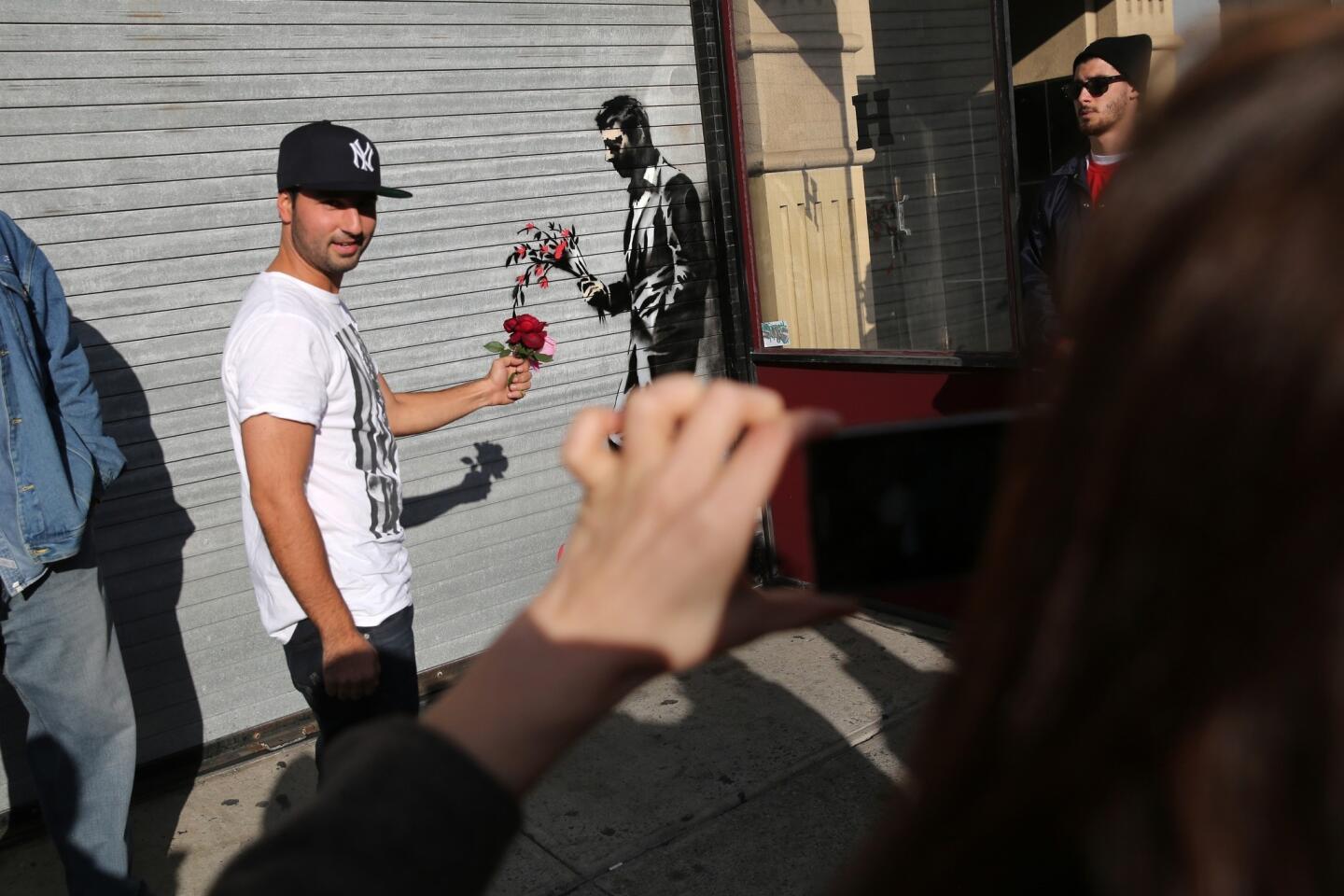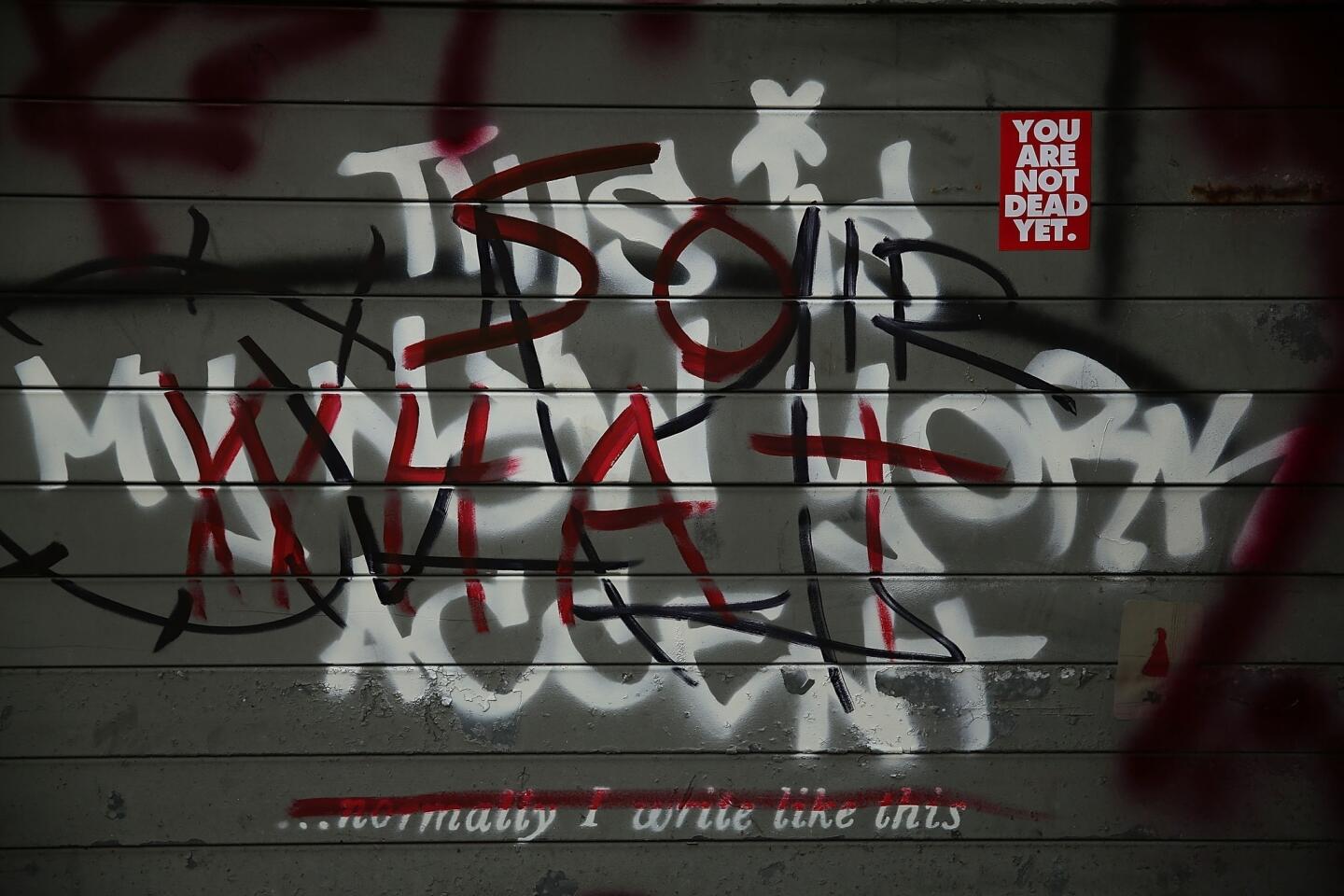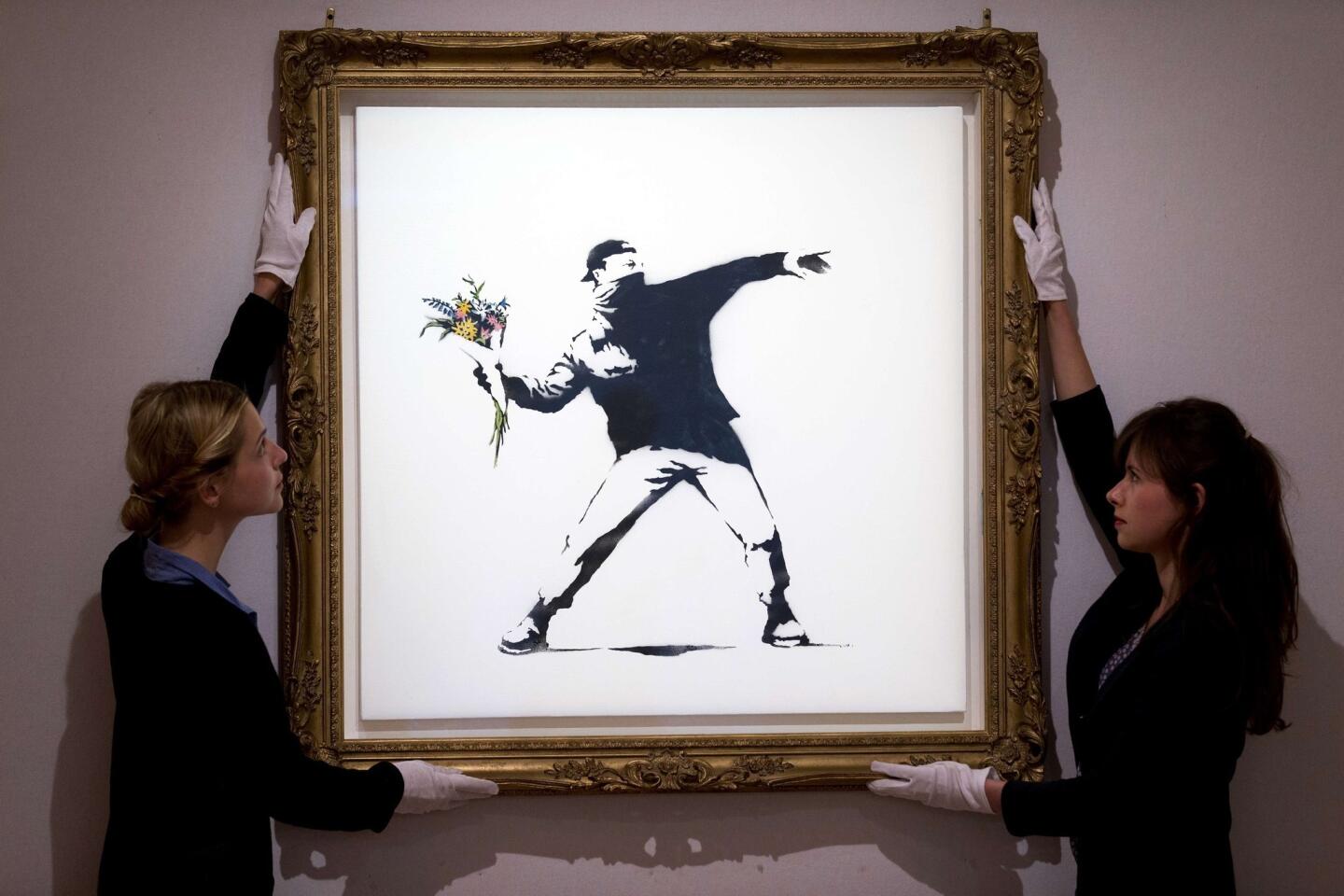Emanuel Ax maintains a deep affection for Brahms
- Share via
NEW YORK — On a drizzly afternoon last month, the pianist Emanuel Ax crossed 57th Street and repeated a short journey he has made many times, walking between Carnegie Hall and Steinway Hall, two pillars of this city’s musical life. He had just concluded a video interview at the former, where he has performed regularly for decades. Yet he was still eager to talk, arriving at the latter — the flagship store of his preferred instrument — with Brahms on his mind.
“It’s such complicated and deep stuff,” Ax said of Brahms’ music, not meaning to sound solemn. Wearing a blue sport coat, black shirt and charcoal trousers, he was characteristically amiable and authoritative while sitting in a room that was once the office of Henry Z. Steinway, the last in his family to run the company. “I think you can just play Brahms forever. I think he’s right up there with the other big guys: Mozart, Beethoven, Bach. You don’t get tired of the Beethoven concertos or sonatas, and I think that’s true for Brahms’ music as well.”
Brahms looms large for the 64-year-old pianist because the composer’s music lies at the heart of several concerts he is giving in four American cities in the coming months. In Los Angeles, where Ax has appeared regularly since 1975, the Los Angeles Philharmonic will present four programs at Disney Hall under the title “Emanuel Ax’s Brahms Project.” The first runs Friday through Sunday and features him performing Brahms’ Piano Concerto No. 1, with the young English conductor Robin Ticciati leading the orchestra.
CRITICS’ PICKS: What to watch, where to go, what to eat
The series concludes at the beginning of May, when Ax and the Philharmonic perform the composer’s Second Piano Concerto, with Gustavo Dudamel conducting. In between, come recitals with the mezzo-soprano Anne Sofie von Otter (Jan. 21) and the cellist Yo-Yo Ma (Feb. 25).
This largesse of Brahms may seemed ill-timed for concertgoers accustomed to seeing anniversaries drive such programming. The last major milestone relating to Brahms came in 1997, the centenary of his death, and the next one, the 200th anniversary of his birth, doesn’t arrive till 2033. But that didn’t concern Ax, who was asked to suggest a composer to follow his joint tributes to Chopin and Schumann four years ago — each of whom had a bicentenary at that time. Those concerts paired works by Chopin and Schumann with new music, and Ax decided to repeat the pattern, asking a different group of living composers to write pieces that would complement Brahms.
“I suggested Brahms just because I’m a huge Brahms fan,” Ax said, emphatically rejecting the idea that the composer had become passé, but adding: “There’s a feeling that you have to be profound and slow when you do certain pieces of Brahms, but we need to remember that he wrote some of this music when he was much younger than we are.”
PHOTOS: Arts and culture in pictures by The Times
The new works, written for various combinations of performers, are by the Australian Brett Deanand the Americans Missy Mazzoli, Nico Muhly and Andrew Norman, the Los Angeles Chamber Orchestra’s composer-in-residence.
“I still haven’t seen Andrew’s piece,” confided Ax, born in Poland but a New Yorker since his teens. “So it’s a bit of a panic, but all new music is a bit of a panic. You get it when you get it, and you practice it when you can. I’m getting old now, and it’s getting harder to learn new works — though I’ve heard many great pianists at an advanced age, and they sounded great. The most amazing, in that sense, was Arthur Rubinstein. In his 70s, he sounded like a young man, full of sap.”
If Ax has concerns about his abilities dimming, others do not, including Muhly, whose piece “So Many Things” was written for Ax and Von Otter. “He’s a sort of childhood hero of mine,” Muhly said of the pianist, who is widely admired for his warmth, taste and lyricism at the keyboard. “What I like about his playing is that he’s not scared of virtuosic patterns. But I’m more interested in his commitment to being faithful as an interpreter. He knows exactly what is required of every piece he plays. And you get the sense he’s a wonderful collaborator — that he’s totally committed, no matter what the music.”
If anyone knows Ax as a collaborator, it’s Ma, his friend since their student days at the Juilliard School and subsequently a favored colleague. “We were cheeseburger friends,” said the cellist, recalling their long-ago meetings in the school cafeteria. “Manny was obviously smart and also nice and told a lot of jokes — those were some of my first impressions. And guess what? That’s still my impression.
ART: Can you guess the high price?
“He is always involved in the whole piece, always trying to find how things fit in. He’s not obsessive in his management of detail, but he’ll think deeply about it. His approach is that it doesn’t matter how much you know or what you’ve done before; it’s what you bring to the moment. How present are you? He always says that he’s so lucky to be a musician, because you’re always a student, always learning.”
Ax’s affection for Brahms runs deep — back to his teenage years, when he was wearing out LPs of Rubinstein playing the Second Concerto. “I fell in love with Brahms from that time on,” he said. “I did a lot of chamber music when I was young, and there’s nothing like Brahms chamber music. The proof is that there’s nothing obscure; it’s all played all the time.”
But Brahms also strikes a deeper chord in the pianist, one beyond just the notes. “He had an amazing life,” Ax said. “Professionally, he was incredibly successful, renowned in his time. At the same time, he had a personal life that was so sad and depressing. He was beautiful in his youth, but he fell in love with a woman that he just couldn’t have,” the pianist Clara Schumann.
“On top of that, he worshiped her husband,” the composer Robert Schumann. “It’s such a sad and romantic 19th century story. And I’ve always felt bad for him. I thought someone who wrote such wonderful music and was such a wonderful man to so many other musicians deserved better. So I’ve always had a great sympathy for him on the personal side. It’s been a lifelong love.”
More to Read
The biggest entertainment stories
Get our big stories about Hollywood, film, television, music, arts, culture and more right in your inbox as soon as they publish.
You may occasionally receive promotional content from the Los Angeles Times.





























